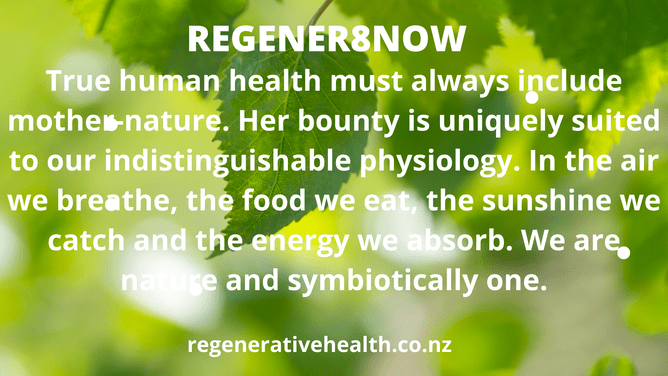Mother Nature is Vital for Optimum Health and Wellbeing
Food can be a source of great health when we use it wisely.
Diets come and go with trends, new science and fads. These diets don’t work for because they are designed for the masses in a one size fits all approach. Unfortunately we are all individuals where food is concerned, one man’s medicine is another mans poison. So rather than put yourself through a diet that may NOT suit you there are some real take home tips everyone can use for better health. And the following foods are your medicines when consumed daily.
“GBOMBS” stands for Greens, Beans, Onions, Mushrooms, Berries and Seeds.
The acronym “G-BOMBS” stands for the most powerful cancer/disease fighting foods in natures Farmacy.
Eat any one of these foods every day and you will build resilience to dis-ease.
Just by changing your diet to incorporate these foods miracles can happen.
But it also takes knowledge. Knowledge is power. When you know why these foods are helping you and how these foods are helping you it is easier to accomplish optimum health.
The power of belief.
When you believe something - your body responds by making it so.
Now that might seem strange to you but not when you look at clinical trials for a new drug. In many clinical trials there is two groups of people some receive the drug while others receive a placebo. Often the placebo group will get positive results too and this is due to the belief you are getting the drug. Scientific studies have shown when you believe it will work your body cleverly makes the exact chemicals to get the exact result you are looking for.
That doesn’t mean those foods won’t work if you don’t believe but knowing they will work helps cement in your mind - there is a lot of proof this will help me.
Always choose Organic as nature intended.
I will always recommend organic food where possible. If you can’t get organic wash your food in apple cider vinegar and water, this helps remove most toxic chemical residue.
The best food sources are your own vegetable garden or a farmers market. Local food sources are very important because that plant has grown and resisted the toxins in the same environment you live in. When you eat those foods they impart that protection on to YOU.
Now let’s take a look at the powerhouse these foods pack to maximize your health.
G – Greens
Dark green leafy vegetables are full of fibre, nutrients and minerals. Containing phytochemicals that protect your blood. Chlorophyll (plant blood) absorbs energy from the sun and then transforms water and carbon dioxide into oxygen and carbohydrates. Rich in folate (converted to folic acid in the body), other B vitamins for heart health, calcium, iron, magnesium, potassium, ascorbic acid and phosphorous.
An excellent tool for weight loss, since they can be consumed in virtually unlimited quantities.
One vegetable considered highest in nutrients is raw spinach providing 56% of your daily vitamin A needs plus your entire daily vitamin K requirement — all for just 7 calories.
All vegetables contain protective micronutrients and phytochemicals, but plant medicines such as alkaloids and flavonoids are NOT present in chemically produced foods especially when using roundup (1).
Cruciferous vegetables have a unique chemical composition – they contain glucosinolates, and when their cell walls are broken by blending, chopping, or chewing, a chemical reaction converts glucosinolates to isothiocyanates (ITCs) – compounds with a variety of potent anti-cancer effects. ITCs are adaptive able to work in different locations in the cell and on different molecules. Working synergistically to remove carcinogens, reduce inflammation, neutralize oxidative stress and inhibit angiogenesis - the process by which tumors acquire a blood supply.
B – Beans
Cheap nutritious and super healthy a great way to load up on protein and fibre.
Although beans vary in nutrient density pinto beans for example pack a massive nutrient hit.
Protein: 15 grams
Fat: 1 gram
Carbs: 45 grams
Fibre: 15 grams
Iron: 20% of the Daily Value (DV)
Calcium: 8% of the DV
Magnesium: 21% of the DV
Phosphorous: 25% of the DV
Potassium: 21% of the DV
Folate: 74% of the DV
Beans also contain decent amounts of zinc, copper, manganese, selenium, and vitamins B1, B6, E, and K.
It is important to soak your beans and legumes to make them more digestible and to stop flatulence. Soak overnight. Drain and cook as normal.
Digested slowly they help create satiety and modulate blood sugars.
O – Onions – one of the few vegetables used in every cuisine in the world.
Scientific studies have shown positive relationships between including onions in diets and
A reduced risk of stomach and brain cancer in humans
Inhibited platelet-mediated thrombosis (a process that leads to heart attacks and strokes)
Reduced levels of cholesterol, triglycerides and thromboxane in the blood (substances involved in the development of cardiovascular disease)
A reduction in symptoms associated with osteoporosis.
(From : Onions – Phytochemical and Health Properties, provided by the National Onion Association)
Onions are members of the Allium family which includes Garlic, leeks, onions and shallots. A powerhouse for respiratory heart health due to its sulphur compounds.
Quercetin a compound in alliums has multiple health benefits known to prohibit the activity or creation of cancer-causing elements. A quercetin-rich diet has been associated with a lower risk of developing lung cancer.
Quercetin has antioxidant properties able to:
Fighting free radicals. ...
Reduce inflammation. ...
Reduce the risk of cancer. ...
Preventing neurological diseases. ...
Relieving allergy symptoms. ...
Preventing infections. ...
Reducing the risk of heart disease. ...
Lowering high blood pressure
Lower Risk of Heart Disease and Stroke
Onions also contain organic sulphur compounds which are responsible for the strong taste and smell. They help reduce the level of cholesterol in your body and may also help break down blood clots, lowering your risk for heart disease and stroke. Eating onions raw rather than cooked will get the most sulphur compounds from them.
Flavonoids – known as plant medicines can also be found in alliums they help protect against Alzheimer’s and Dementia.
A ½ -cup serving of chopped, raw white onion contains:
Calories: 32
Carbohydrates: 7 grams
Protein 1 grams
Fat: 0 grams
Fibre: 1 grams
Sugar: 3 grams
Onions are also a good source of:
Vitamin B6
Vitamin C
Copper
Niacin
Potassium
Sodium
Folate
Dietary fibre
M – Mushrooms
The nutritional value of edible mushrooms is due to their high protein, fibre, vitamin and mineral contents, and low-fat levels.
More than 100 medicinal functions are produced by mushrooms and fungi and the key medicinal uses are antioxidant, anticancer, antidiabetic, anti-allergic, immune-modulating, cardiovascular protector, anti-cholesterolemic, anti-viral, anti-bacterial, anti-parasitic, anti-fungal, detoxification, and hepato-protective effects; they also protect against tumor development and inflammatory processes.
Mushrooms have been used as medicine for thousands of years worldwide. Their bioactive compounds benefit human health.
They are high in minerals mainly potassium, phosphorus, magnesium, calcium, copper, iron, and zinc.
Mushrooms are also a good source of vitamins with high levels of riboflavin (vitamin B2), niacin, folates, and traces of vitamin C, B1, B12, D and E.
Mushrooms are the only non-animal food source that contains vitamin D and hence they are the only natural vitamin D ingredients for vegetarians. Wild mushrooms are generally excellent sources of vitamin D2 unlike cultivated ones; usually cultivated mushrooms are grown in darkness and UV-B light is needed to produce vitamin D2.
B – Berries
Blueberries contain a large number of phytochemicals, including abundant anthocyanin pigments. Of their various phytochemicals, anthocyanins probably make the greatest impact on blueberry health functionality. Epidemiological studies associate regular, moderate intake of blueberries and/or anthocyanins with reduced risk of cardiovascular disease, death, and type 2 diabetes, and with improved weight maintenance and neuroprotection.
Among the more important healthful aspects of blueberries are their anti-inflammatory and antioxidant actions and their beneficial effects on vascular and gluco-regulatory function. Blueberry phytochemicals may affect gastrointestinal microflora and contribute to host health.
Berries are rich sources of a wide variety of antioxidant phenolics; these phytochemicals include flavonoids, stilbenes, tannins, and phenolic acids. Reactive oxidant species and free radicals are produced in an extensive range of physiological processes. In addition to the antioxidant defences produced in the body, there are exogenous sources supplied by the diet; this is the case of berry fruits.
Based on the results from recent clinical trials, it can be established that a berry diet rich in antioxidants and bioactive phytochemicals has beneficial effects on hepatic function, increase of insulin sensitivity and high-density lipoprotein-cholesterol, decrease of serum glucose and low-density lipoprotein-cholesterol, and finally is inversely associated with the incidence of type 2 diabetes.
S – Seeds
Edible seeds have a significant contribution to human nutrition. As small embryonic plants enclosed in a coat, the product of the ripened ovule of flowering plants after pollination and the completion of the process of reproduction.
They include grains (cereals), nuts, legumes, and cocoa and coffee beans. Human populations derive most of their energy needs from seeds or seed products, particularly grains (wheat, corn and rice) and legumes (soybeans). Seeds are made of complex matrices in the outer layer and the germ, rich in minerals, vitamins, and bioactive phytochemicals that protect the plant's DNA from oxidative stress, thus facilitating the perpetuation of the species.
Seeds also provide most culinary oils and widely consumed beverages (coffee).
Whole seeds provide a wide array of bioactive molecules likely to have significant health benefits.
Containing enough phyto-sterols to build the cell membranes of the future seedling, giving them the highest content of these bioactive molecules among natural plant foods.
Seeds contain little sodium but are rich in K+, Mg++, and Ca++. All three are critical in cellular metabolism and many physiologic processes, of which blood pressure regulation has been most studied
Among seeds, nuts are particularly rich in vitamin E compounds, mainly α-tocopherol, a well-known antioxidant that, together with vitamin C, carotenoids, and selenium, contributes to the body's defence against reactive oxygen species.
Seeds, particularly nuts, pulses, and cocoa products, are particularly rich in polyphenols which are strong antioxidants ubiquitous in plants.
There is substantial evidence that increased consumption of seeds, including whole grains, nuts, legumes, cocoa products, and coffee, is associated with lower risk of CVD.
They also have the potential to reduce blood cholesterol. Considered natural health capsules, where the synergistic interaction of their many bioactive constituents may all favourably influence human physiology.
Cardio-protective consumption of nuts at least twice per week is recommended. Frequent nut consumption also relates inversely to total mortality, as suggested by recent reports from a large Dutch cohort and the Nurses’ Health Study (NHS).
All seeds contain bioactive polyphenols, water-soluble pigments capable of quenching oxygen-derived free radicals. As such, these compounds defend seeds against oxidative stress and radiation injury, pathogenic micro-organisms and insects, besides conferring organoleptic characteristics (odour and flavour).
So there you have it.
G-BOMBS protect you from high cholesterol, heart disease, insulin resistance, inflammation, respiratory ailments, cancer, obesity and many other diseases as well as help you maintain perfect weight.
While diet fads may come and go daily consumption of G-BOMBS will help you achieve optimum health.
There is something for everyone in this diet all you have to do is eat just one or two servings a day and watch your health improve.
References:
1/ https://childrenshealthdefense.org/?s=roundup
3/https://pubmed.ncbi.nlm.nih.gov/20645129/
4/ https://pubmed.ncbi.nlm.nih.gov/31329250/


